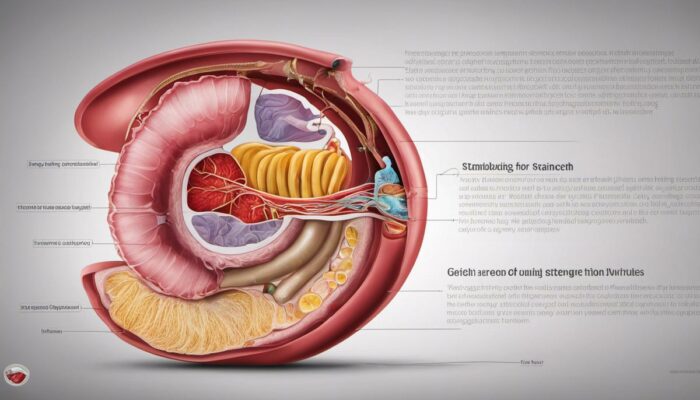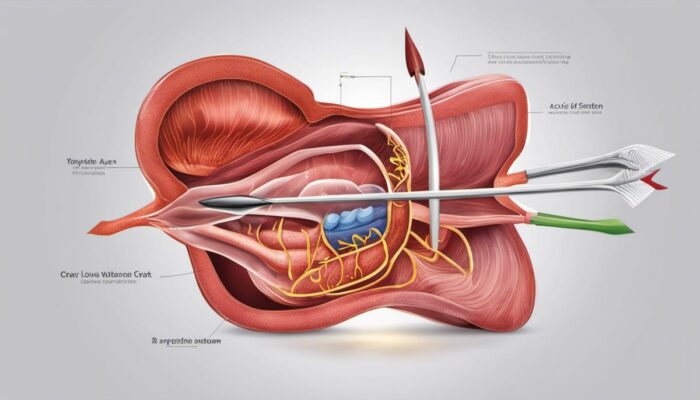As an Integral component of the digestive system, Stomach Acid (HCL) plays a myriad of significant roles. These range from breaking down the foods we eat to aiding in the absorption of important nutrients. Yet, a prevalent but often overlooked issue is when stomach acid levels are too low and the potential health implications this can have on our well-being.
So, knowing what foods we can add to our diet can be quite helpful here. Although, besides this, knowing what foods to avoid if you have low stomach acid is equally just as important.
Why In today’s post, we shall look at the impact of Low Stomach Acid (Hypochlorhydria). The possible effects it can have on our good health, and how the foods and drinks we consume can either exacerbate or alleviate these symptoms.
And, with this in mind, we shall look at the main food groups to avoid if we have this condition and how we can act to bring our pH levels back under control for optimal digestion and overall gut health.
*Note: the ideal pH levels for an ideal environment of stomach acidity are 1.5 to 3.5 for every 20-100ml*
We hope this information can be helpful for you and if you think it could be then please keep reading.
5 Foods to Avoid if You Have Low Stomach Acid
For this post, we shall be mostly looking at 5 different food groups that could potentially be problematic for those of us affected by Low Stomach Acid (Hypochlorhydria). The top 5 are;
- Alcohol: Frequently drinking alcohol in large quantities could cause damage to the stomach lining and consequently limit the production of stomach acid.
- Caffeine: High-caffeine beverages like coffee and energy drinks might cause the lower esophageal sphincter to relax, allowing stomach acid to flow into the esophagus and provoke heartburn or indigestion.
- Spicy Foods: Individuals may react differently to spicy food. In some cases, these types of food might worsen symptoms linked to low stomach acid such as heartburn and indigestion.
- Sugary Drinks: Because drinks high in sugar ferment and can cause an increase in gas production, they can exacerbate symptoms of bloating – a key indicator of low stomach acid.
- Overly Processed Foods: These foods that are often lacking in dietary fiber, can slow digestion and increase the symptoms of low stomach acid.
As a general rule of thumb carefully managing your diet when dealing with low stomach acid can involve cutting out such types of food.
Nonetheless, the effects of these foods can vary based on the individual, so it’s essential to take note of how different foods affect you personally.
A healthcare professional can give guidance on tailored dietary plans and advise on changes to your diet or suggest supplements that could naturally boost stomach acid production.
Understanding Low Stomach Acid
Low stomach acid, clinically referred to as Hypochlorhydria is a health condition where your stomach doesn’t produce enough hydrochloric acid. Hydrochloric acid plays a crucial role in the body. It breaks down food in the stomach, activates enzymes that contribute to protein digestion, and helps absorb certain vital nutrients like vitamin B12, iron, and calcium.
A vital function of stomach acid is to protect your body against harmful bacteria prevalent in food and drink and neutralize unwanted microbes that enter the stomach. Therefore, stomach acid plays a vital role in eliminating possible pathogens from food, thus protecting the body from various infections.
Abnormally low levels of stomach acid can impact digestion negatively. This underproduction of hydrochloric acid can lead to symptoms such as bloating, belching, flatulence after meals, heartburn, indigestion and gastroesophageal reflux disease (GERD), and under-nutrition due to malabsorption of nutrients.
Identifying Low Stomach Acid Symptoms
Certain signs and symptoms can help identify if someone might have low stomach acid. These include;
- Heartburn or Acid Reflux,
- Bloating and Discomfort After Meals,
- Nausea when Taking Vitamins and Supplements,
- Bad Breath (Halitosis)
- Nutrient Deficiencies, particularly iron and vitamin B12.
- Unintended Weight Loss,
- Weak or Brittle Nails and
- Hair Loss
However, to really determine if you have low stomach acid (hypochlorhydria) it may be sensible to get tested. You can try a simple test at home with baking soda where you drink a glass of baking soda to see if it makes you burp. If you do not this can indicate that you may have this condition.

Effects of Low Stomach Acid on Health
Implication of Low Stomach Acid on Overall Health
Imbalanced stomach acid levels, particularly low levels, also known in the medical world as Hypochlorhydria, can have significant health consequences. Common symptoms such as bloating, heartburn, and indigestion are often indicative of nutrient malabsorption due to subpar digestion.
This lack of absorption isn’t limited to; it includes crucial elements like Vitamin B12, Magnesium, Zinc, and Calcium. Consequently, deficiencies in these areas can bring about symptoms of fatigue, a weakened immune system, and in general, poor overall health.
Over long periods, these deficiencies may result in severe conditions like anemia, osteoporosis, and mood disorders. Among other symptoms, low stomach acid can also heighten risks of developing food allergies or tolerances, as well as bacterial or fungal growths, because the acid plays an integral part in sterilizing stomach contents before they move along the digestive tract.
Foods and Habits that Impair Stomach Acid Levels
Certain foods are more likely to increase the risk of low stomach acid and can exacerbate the symptoms. Sugar and processed foods, particularly those high in additives and preservatives, can reduce stomach acidity. Foods that are difficult to digest, like grains and dairy products, could also worsen the situation, while a diet with insufficient protein may not provide the necessary amino acids for acid production.
Alcohol is another major contributor to lower stomach acid levels. Its regular consumption can inflame the stomach lining, reducing the production of gastric acid. Incorporating coffee or other caffeinated drinks in great deal into daily routine can have a similar effect.
Managing the Effects of Low Stomach Acid
The effects of low stomach acid can be managed by avoiding or minimizing the intake of certain food items. Adhering to a balanced diet comprised of fruits, vegetables, lean proteins, and healthy fats can help maintain appropriate stomach acid levels.
Consistent and unhurried mealtimes are crucial for enabling thorough food breakdown and nutrient absorption.
Additionally, consuming large amounts of water with meals should be avoided, as it could dilute stomach acid, compromising its effectiveness.
Stress and inadequate sleep are known to impact your body’s ability to produce sufficient stomach acid. Therefore, managing stress levels and ensuring good sleep hygiene are recommended for enhancing digestion.
In certain instances, under professional medical guidance, acid supplements may be considered. A healthcare provider can assess the severity of your condition and suggest suitable interventions. Regular health check-ups can be beneficial for individuals dealing with low stomach acid issues.

Identifying Foods to Avoid
Comprehending Stomach Acidity
Stomach acidity, as indicated by the pH level in your stomach, plays a pivotal role in protein digestion in your diet. Low stomach acid levels, scientifically known as Hypochlorhydria, can result in subpar protein digestion, potentially leading to symptoms such as bloating, stomach pain, and discomfort.
Foods to Avoid with Low Stomach Acid
People suffering from low stomach acid should avoid specific foods to prevent exacerbating symptoms. It’s recommended that those with Hypochlorhydria steer clear from foods high in complex carbohydrates. These are harder to break down and contribute to the bloating and discomfort that comes with low stomach acid. Foods in this category include grains, potatoes, and legumes.
Dairy products
Dairy products like milk, cheese, and cream can exacerbate symptoms of low stomach acid. They are high in fat, which makes them harder for the body to digest when stomach acid levels are low. When digested, these high-fat foods can lead to abdominal discomfort and bloating.
Another reason to avoid dairy products is the potential lactose intolerance, which is common among people with low stomach acid. The body requires a certain amount of stomach acid to break down lactose; a lower level makes lactose digestion difficult, leading to discomfort and bloating.
Sugar and Processed Foods
Sugar and processed foods often contribute to reducing stomach acid levels. They might lead to bloating and discomfort symptoms common in people with Hypochlorhydria. Processed foods are typically high in unhealthy fats and sugar and lack enough fiber and essential nutrients. They can affect the stomach’s acidity levels, making it challenging for the stomach to digest these foods, leading to discomfort.
Spicy Foods
Spicy foods like chili peppers can increase acidity, but they can also damage the gastrointestinal mucosa, leading to further discomfort for people with low stomach acid. The capsaicin, the component that gives them their heat, can cause more damage if the stomach acid level is already low, worsening symptoms like abdominal pain and discomfort.
Alcohol and Caffeine
Alcohol and caffeine share one thing in common – they both can cause the stomach to produce less acid. Alcohol can cause inflammation in your gut lining that can block the production of acid, while caffeine can also limit acid production. Therefore, these beverages might cause discomfort and exacerbate symptoms for those with low stomach acid.
Fatty Meats
Fatty meats like pork and beef require more stomach acid for digestion. For people with low stomach acid, it can be a tall order, leading to prolonged digestive discomfort and bloating after meals.
Bear in mind that this list is not comprehensive, and individual reactions to certain foods may differ. Keeping track of your eating habits through a food diary can be helpful in pinpointing any specific triggers unique to you. Even more so, it is strongly advised to seek advice from a healthcare professional or a registered dietitian to get more personalized recommendations.

Alternative Nutritional Choices
Getting to Grips with Low Stomach Acid
Low stomach acid, or hypochlorhydria as it is medically known, is a condition characterized by the underproduction of essential hydrochloric acid (HCL) by your stomach. This can lead to an array of digestive discomforts such as bloating, and heartburn and it may even cause malnutrition due to the inability to absorb nutrients properly.
Altering your diet is one of the key methods to control and potentially improve this condition.
Avoid Difficult-to-Digest Foods
Food items that are harder to digest could exacerbate the symptoms of low stomach acid, leading to discomfort. These include processed food, junk food, fried and fatty foods, dairy products, and gluten-containing grains. These food items are challenging to break down and hence could put extra pressure on the stomach, exacerbating the symptoms.
Increase Intake of Lean Proteins
Protein is essential to stimulate stomach acid production. However, individuals with low stomach acid should opt for lean proteins as they won’t burden the stomach with excess fats that could hinder digestion. Chicken, turkey, fish, and plant-based proteins like lentils and beans are suitable options.
Incorporate Vitamin-rich Foods
Vitamins C, B, E, and A are all necessary for healthy stomach acid production. Fruits and vegetables are generally high in these and other vitamins, so incorporating them into your diet is beneficial. Bell peppers, dark leafy greens, berries, citrus fruits, and tomatoes are excellent sources of these essential vitamins.
Eat Slowly and Chew Food Thoroughly
Eating habits can significantly affect stomach acid production. Eating quickly could result in decreased stomach acid production. It’s essential to chew each mouthful thoroughly to break it down into smaller particles, which are easier for the stomach to digest.
This practice also initiates salivary enzyme release, which is crucial for optimal digestion.
Stay Hydrated, But Not During Meals
Water is essential but it can dilute stomach acid if consumed during meals. Try to drink liquids half an hour before meals or an hour after, to help maintain optimum stomach acidity levels.
Healthy Lifestyle Choices
Engaging in regular physical activities could also promote better digestion and balance stomach acidity levels. However, avoid rigorous exercises immediately after meals to prevent heartburn or reflux. Stress could also affect stomach acid levels. Hence, incorporating stress-management techniques like meditation or yoga could also offer significant benefits.
Consider Digestive Supplements
Digestive supplements containing enzymes, or natural elements like apple cider vinegar, could potentially support digestion and increase stomach acid levels. Consult with a healthcare professional before adding any supplements to your routine to avoid adverse reactions.
Finally, pay attention to your body and its reactions.
Everyone is unique, and what works for others might not work for you. Consider seeking professional nutritional advice to devise a personalized diet and lifestyle plan that addresses your specific needs.

In Conclusion
By getting to grips with the fundamentals of how low stomach acid can affect your health and changing your diet accordingly, you are taking a significant step towards better health and nutrition. Detrimental symptoms such as malnutrition, poor digestion, and bloating can largely be mitigated by avoiding certain foods that aggravate these symptoms while embracing those that support optimal stomach function.
By understanding and acting on this knowledge, one can adapt their diet to promote not just increased stomach acid production and better digestion, but ultimately, a healthier lifestyle.
Just remember, your diet is an essential tool in maintaining bodily wellness, especially when dealing with conditions such as low stomach acid. I shall finish here but if you’d like to read more CLICK HERE<<




Anxiety and Depression best ways to lower blood sugar BiOptimizers blood pressure supplements blood sugar support supplements Digestive Enzymes Supplement digital products Dr Sam Robbins Erectile dysfunction Exercise Gut Health Healthy Living heart health HFL how to lower blood sugar levels How To Lower Cholesterol insulin resistance joint health supplement Keto keto dieting Keto Diet Weight Loss leaky gut supplements leptin resistance list Magnesium deficiency Matt Gallant mental health multivitamins Nootropics nutrient supplements Probiotics Probiotic Supplements proteolytic enzymes reverse type 2 diabetes stress and anxiety stress relief vitabalance vitapost Wade Lightheart weight loss articles weight loss diet plans weight loss product reviews weight loss supplements weight loss supplements that work weight loss tea